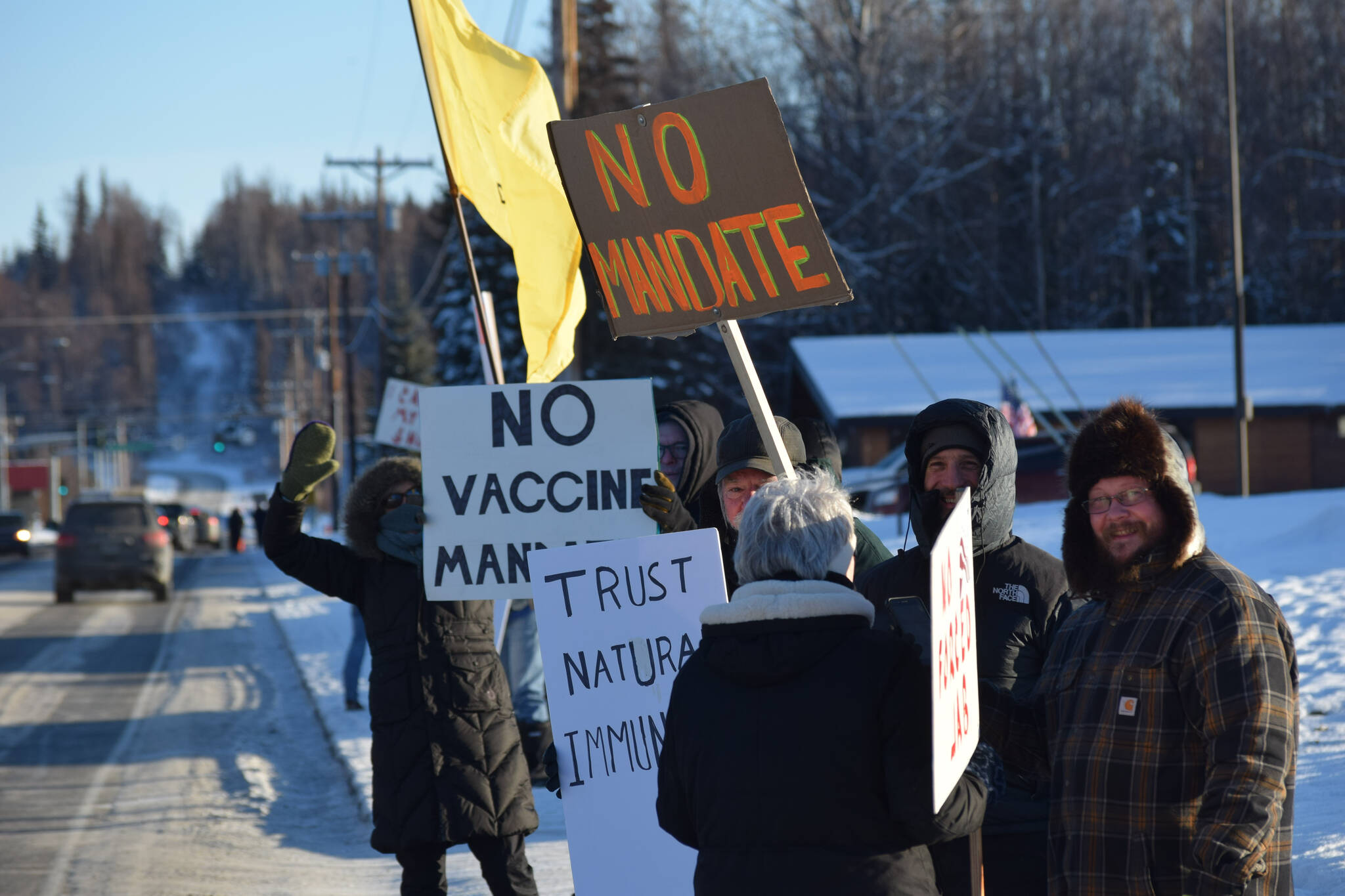Central Peninsula Hospital will enforce COVID-19 vaccine mandates for its employees, after a Supreme Court decision Thursday backed a federal initiative to require the shots for health care employees in facilities that receive federal Medicaid and Medicare (CMS) funding.
Bruce Richards, the external affairs director of CPH in Soldotna, said Thursday that the facility will continue in its efforts to come into full COVID vaccine mandate compliance — by requiring the shot for employees, or a legitimate medical or religious exemption. The hospital receives federal CMS funding.
“We’ll fire back up where we left off and continue marching down that road towards compliance with the mandate,” Richards said.
CPH had already begun the process of requiring COVID vaccination for all employees when President Joe Biden’s administration issued the order in November, according to the federal case slip opinion.
Soon after the announcement in November, Alaska Attorney General Treg Taylor joined nine other states in suing the administration over Biden’s mandate, according to a press release from the state attorney general’s office. On Thursday, those opposed to the mandate lost in the Supreme Court.
The Associated Press reported Thursday that the CMS employee vaccine mandate will apply to 10.4 million health care professionals and 76,000 health care facilities nationwide. Justices Stephen Breyer, Elena Kagan and Sonia Sotomayor, as well as Chief Justice John Roberts and Justice Brett Kavanaugh voted to uphold the CMS mandate in a 5-4 vote Thursday.
“It’s unfortunate the court placed healthcare workers in a different category than other Americans, and the decision not to uphold an injunction and protect the individual freedoms of healthcare workers in Alaska could have a lasting and damaging impact on staffing and patient care at medical facilities across the state,” Taylor said in the press release.
Although the court permitted a CMS vaccine mandate, it also blocked Biden’s vaccine mandate for employees of large businesses with more than 100 workers. Alaska, as well as a coalition of other states, sued the Occupational Safety and Health Administration and won in court Thursday, according to the release.
Richards said just about 70% of CPH staff were considered fully vaccinated against COVID as of Thursday. Of the rest who are unvaccinated, he said he’s not sure yet if there will be resignations or layoffs following the CMS Supreme Court decision.
“It’s hard to say,” Richards said. “There may be some people that decide not to do either (vaccinate or apply for an exemption) or decide to depart, but I really don’t know.”
He did say, however, that if staffing changes will be made it won’t affect very many people.
“The majority of our workforce is already compliant,” Richards said. “There’s a small pool left and so it’s not going to be an enormous number.”
Following the Supreme Court ruling, Richards said it’s still unclear when the deadline to come into vaccine compliance will be.
According to the slip opinion of the case, the Biden administration issued the CMS ruling after studies found that the “virus can spread rapidly among healthcare workers and from them to patients, and that such spread is more likely when healthcare workers are unvaccinated.” The administration said the approximate 35-plus-percent of unvaccinated health care workers “pose a serious threat to the health and safety of patients,” according to the opinion.
This comes as Alaska, as well as the rest of the country, is undergoing another surge in COVID cases.
Chief Medical Officer Dr. Anne Zink said during a press briefing Thursday that the current wave can be attributed to the highly transmissible omicron variant of the virus.
She also said the state Department of Health and Social Services is following federal health mandates and supporting health care employees and facilities across Alaska.
“Whenever we see changes to workplace requirements we see changes in demand for testing, as there may or may not be testing requirements,” Zink said. “And we are just here to support the needs of Alaskans, depending on what their business, what their job, (or) what their health care requires.”
Logistically, the state health department is watching closely to see how much testing will be needed moving forward, and how the caveats within the Supreme Court ruling will affect the Alaska health care system, she said.
Reach reporter Camille Botello at camille.botello@peninsulaclarion.com.

